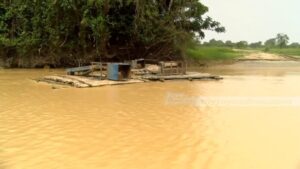
Several global initiatives have decisively demonstrated that illegal mining can be combated with strategic, collaborative action
Tackling illegal mining has long been a formidable challenge for many nations, but some countries are proving that real progress is possible with the right approach. Colombia offers a compelling example. Through USAID-supported initiatives, 42 gold mining operations have been successfully formalized, not only helping to eliminate nearly 40 tons of toxic mercury from the mining process but also transforming the industry into a powerful driver of economic growth. These efforts have generated an impressive $110 million in legal gold sales, benefiting local communities and boosting Colombia’s economy.
Moreover, the environmental benefits are substantial. Over 17,000 hectares of land previously devastated by illegal mining have been rehabilitated, restoring ecosystems and paving the way for sustainable land use. This progress in Colombia shows that with targeted interventions and international cooperation, it is possible to combat illegal mining, safeguard the environment, and unlock significant economic potential for communities.
Can the Columbian experience be transferred elsewhere? Yes.
Several global initiatives have decisively demonstrated that illegal mining can be combated with strategic, collaborative action:
- In Peru, USAID’s $23.9 million program has bolstered institutional strength, significantly curbing environmental crimes. This initiative has empowered civil society and the media to play a vital role in prosecuting environmental offenders.
- In the Central African Republic, USAID’s support for the Kimberley Process Certification Scheme has been instrumental in improving compliance, leading to a partial lift of the diamond embargo in 2015, a critical step in reducing conflict-related mineral trade.
- In the Democratic Republic of Congo, USAID’s efforts have validated over 600 artisanal mining sites as conflict-free, with 75% of tin, tantalum, and tungsten sites now free from the grip of armed groups.
These successes underscore the power of coordinated government action, international support, and local engagement in tackling illegal mining. Countries that commit to these proven strategies can not only curb illegal mining but also transform their mineral industries into engines of responsible economic growth. The path forward is clear—those who follow it will reap the rewards of sustainable development and strengthened governance.

For Ghana to emerge as a leader in responsible artisanal mining, the New Patriotic Party (NPP) has laid out bold and comprehensive strategies in its 2024 Election Manifesto. These initiatives aim to decisively confront the challenges posed by illegal mining and establish Ghana as a model for responsible mineral extraction.
If re-elected, the party is promising to restore galamsey-polluted water bodies within just three months. This pledge is not just a statement of intent—it’s a decisive action plan that underscores the NPP’s determination to tackle the environmental destruction caused by illegal mining head-on.
This ambitious timeline reflects the party’s readiness to deploy swift, effective measures to reclaim polluted water sources, safeguard public health, and restore natural ecosystems. By making this a top priority, the NPP is signaling to Ghanaians that it will no longer tolerate the devastation of vital water resources and is fully committed to delivering tangible results in record time.
According to the NPP, its long-term strategies approach involves multiple initiatives like Community Mining Scheme which will allow registered cooperatives in galamsey-prone districts to engage in sustainable mining practices; and, the National Alternative Employment and Livelihood Programme (NAELP), launched by President Akufo-Addo, to provide alternative employment opportunities for those affected by the crackdown on illegal mining.
Others include National Land Reclamation and Re-afforestation that focuses on restoring degraded lands and creating job opportunities for the youth and communities; Inter-Ministerial Committee against Illegal Mining (IMCIM) to deal with the crisis situation; and, Operation Vanguard to curb illegal mining activities and protect the environment.
The NPP’s outlined strategies are not mere promises but a roadmap for action. By addressing the core issues of environmental degradation, formalizing artisanal mining operations, and enforcing stricter regulations, Ghana is poised to join the ranks of countries that have successfully transformed their mining sectors. The party’s plan signals a strong commitment to safeguarding natural resources, promoting sustainable development, and ensuring that the benefits of mining are shared equitably across communities.
If implemented with the vigour promised, these strategies could mark a turning point for Ghana, positioning it as a global example of how to balance economic growth with environmental and social responsibility.
Industry watchers believe these measures in collaboration with strict adherence to the country’s mining laws and regulations would prevent illegal and improper mining practices; protect, and preserve the nation’s water bodies.
Story: Oppong Baah







